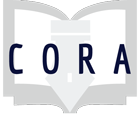Entering students all take MGT101 – Business Management Practice. Creation of a business plan for a unique product or service is the major project for this course. This Library assignment uses a workshop format to give student groups in Management 101 the task of exploring, evaluating, and reviewing a particular resource important in the business plan research process.
Assignments
Rather than just providing a 20min presentation on academic databases available through the library website--this lesson is designed to have students demonstrate using library databases for their classmates. Delivered to our ENG 1B (a required freshman course) students, and timed to coincide with their Argument Essay assignment, students practice accessing and utilizing databases to find information sources. Working in groups, the students explore an assigned database before coming up to the podium to demonstrate the materials, search functionality and features of that database.
This activity asks students to work in groups to evaluate Internet sources to meet a research need. Students will use their available wireless devices, smartphones, tablets, computers, or laptops to retrieve the URLs provided to them. Working together, students will ask evaluation questions, guided by a CRAAP handout (attached) or instructor. Then, groups will share their findings with the class. o Students are grouped (3-4 students per group, number of groups in total is irrelevant what it important is the size of the group remains very small).
This is a short, engaging activity suitable for learners of all levels. In it, students evaluate web sources that are provided by an instructor using the acronym CRAAP (currency, relevance, accuracy, authority, and purpose). Students work together in groups and explore evaluation processes aloud, with guidance from the CRAAP cards and the instructor. This is an adaptation of various evaluating sources activities available in LIS literature and professional resources. This activity is ideally implemented as a kind of collaborative game moderated by the instructor. It is highly adaptable.
For this activity students are asked to imagine that they are organizing a party, specifically a scholarly party. Groups are given a starting article that they evaluate and use as a jumping off point for choosing a theme for their party and finding more sources. Their theme acts as an early version of a research question. Following citations backwards and forwards groups invite other scholars who would have relevant things to say about their theme.
This annotated bibliography assignment has five different versions for five different groups of disciplines: arts, humanities, social analysis (social sciences), life and physical sciences, and quantitative reasoning. Each is meant to give students a way to identify and explore the key types of scholarly sources in those disciplinary categories; for example, to understand what is meant by a primary source in each category.
Students create an entry in the Fremont Wiki - http://localwiki.net/fremont. Students incorporate information literacy concepts, have hands-on experience conducting research, and create actual content on the Internet [while also learning how easy it is for anyone to change that content]. It could also be a great chance to get students into local museums and archives.
Syllabus and five assignments within a two-credit live course at undergraduate level. See "Relevant Links" section for access to all assignments. Assignments include a rubric.
This activity proceeds via Socratic questioning. The goal is to have students explain the common stumbling blocks they encounter as they look for information and as they write papers (if they have). The role of the librarian is to facilitate the discussion by providing a contextual framework for student experiences. By showing students that their research process follows a common pattern, they can make better choices about how, when, and where to look for information (e.g., not jumping straight to peer-reviewed articles when they can barely define their topic)
A general worksheet for students to find key sources in selected databases for their assignments in Communication Studies.
